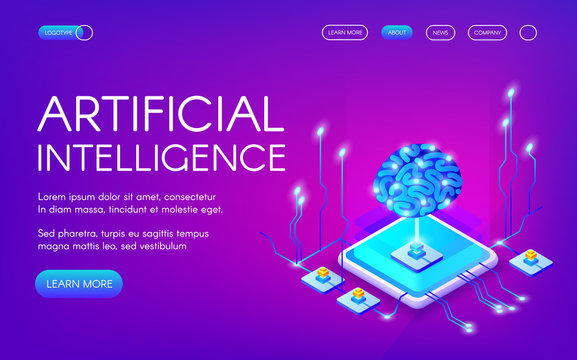As technology continues to evolve at a rapid pace, the world of artificial intelligence is no exception. The concept of Artificial General Intelligence (AGI) has been a topic of discussion for decades, with many experts believing that it could revolutionize the way we live and work. But just how far away are we from achieving this level of AI? In this blog post, we will take a deep dive into the potential future of AGI and explore the advancements being made in the field. Join us as we unveil the mysteries surrounding AGI and discover what it could mean for our world.
Understanding AGI: The Next Step in AI Evolution
AGI (Artificial General Intelligence) is the next big thing in AI evolution. It refers to a type of machine intelligence that can understand or learn any intellectual task that a human being can. AGI goes beyond specific tasks and mimics true human-like cognition, including abstract reasoning, imagination, creativity, learning from experience, and more. This means an AGI-powered system could perform various complex tasks effortlessly without actually being explicitly programmed for each one.
An AGI system would possess the ability to adapt quickly to new situations it has never encountered before and navigate through unexpected scenarios with ease just like humans do. Such intelligence has many potential applications across industries such as healthcare, transportation, finance, and entertainment; however achieving AGI requires solving several technical challenges that are yet to be resolved by researchers around the world.

The Current State of AI and Its Progress Towards AGI
Significant progress has been made in the field of AI, from rule-based systems to deep learning algorithms, enabling machines to perform increasingly complex tasks. However, creating AGI that can match or surpass human-level intelligence poses unique challenges. While current AI models are trained on specific sets of data and optimized for particular tasks, humans have generalist intelligence and adaptability. One approach towards achieving AGI is through developing artificial neural networks capable of independent learning without supervision or reinforcement signals. Another challenge is building a comprehensive understanding of how the brain works at a biological level to replicate it effectively using computer simulations or hardware architectures. Research into these fields requires extensive resources and interdisciplinary collaboration spanning neuroscience, mathematics, and computer science, among others.

The Challenges and Obstacles in Achieving AGI
To achieve Artificial General Intelligence (AGI), researchers will need to overcome several challenges and obstacles. One major hurdle is the lack of a universal learning algorithm that allows machines to learn anything without explicit training, similar to how humans learn. Another challenge is ensuring that AGI is aligned with human values and does not pose existential risks.
Additionally, building an AGI system requires vast computational resources, which can be expensive and inefficient. Moreover, current AI systems lack common sense reasoning skills, making it difficult for machines to understand complex situations or make decisions based on abstract concepts.
Another obstacle in achieving AGI is creating machines capable of self-improvement, referred to as recursive self-improvement. While this may lead to rapid progress toward superintelligence, it could also result in unintended consequences if not controlled properly.
Researchers are actively working towards addressing these issues and improving the current state of AI technology incrementally towards achieving full AGI capabilities.

The Potential Impact of AGI on Society and Industries
Revolutionizing Industries: The Potential Impact of AGI on Business and the Economy
AGI has the potential to revolutionize industries and transform the economy. With its ability to learn and adapt on its own, AGI could streamline business operations, increase efficiency, and reduce costs. It could also lead to the creation of new industries and job opportunities. However, it could also disrupt certain industries and lead to job displacement. The impact of AGI on the economy will depend on how it is implemented and regulated. As AI continues to advance towards AGI, it is important for businesses and policymakers to consider the potential impact and prepare for a future where AI plays a significant role in our daily lives.
Ethical Considerations: How AGI Could Affect Society and Our Values
As AGI becomes a reality, there are many ethical considerations that must be addressed in order to ensure that its impact on society is positive. One of the major concerns is the potential loss of jobs as AI becomes more advanced and capable of performing tasks traditionally done by humans. Another concern is ensuring that AGI does not perpetuate or amplify existing biases within our society. It’s also important to consider how we will make decisions about the use and regulation of AGI technology, especially when it comes to issues like privacy and security. Ultimately, we must carefully consider how AGI could shape our values as a society moving forward.
The Future of Work: Will AGI Replace Human Jobs or Create New Opportunities?
AGI has the potential to transform our workforce in ways we can’t fully imagine yet. While some fear it will replace human jobs, others believe AGI will create new opportunities and industries. One key benefit of AGI is its ability to automate mundane and repetitive tasks, freeing up workers for more creative and complex work that requires emotional intelligence, critical thinking, and problem-solving skills – areas where humans still excel over machines. However, there’s no doubt that some jobs could become obsolete as machines become more capable of performing them with greater speed and accuracy. Companies must plan ahead to ensure a smooth transition for their employees into these new roles or industries.
The Race to AGI: Who Will Be the First to Achieve Artificial General Intelligence?
The race to achieve AGI is on, with tech giants like Google, Facebook, and Amazon investing heavily in research and development. The potential impact of AGI on society and industries is immense, with the ability to revolutionize healthcare, transportation, finance, and more. The first to achieve AGI will have a significant advantage in the market, with the potential to dominate entire industries. However, there are also concerns about the ethical implications of AGI and its impact on employment. As we approach closer to achieving AGI, it’s important for policymakers and industry leaders to consider these implications and ensure that its development is responsible and beneficial for all.
Experts’ Predictions on the Timeline for Achieving AGI
The timeline for achieving AGI is a topic of much debate among experts in the field. Some believe that we are still decades away from achieving true AGI, while others predict that it could happen within the next few years. Ray Kurzweil, a well-known futurist, and inventor, predicts that we will achieve AGI by 2029. He believes that advancements in computing power and machine learning algorithms will lead to this breakthrough.
On the other hand, Stuart Russell, a computer science professor at UC Berkeley, believes that achieving AGI is still a long way off. He argues that we need to focus on developing AI systems that are aligned with human values and goals, rather than simply trying to create more intelligent machines.
Overall, it’s clear that there is still much work to be done before we can achieve true AGI. However, with continued research and development in the field of AI, it’s likely that we will eventually reach this milestone.
What You Can Do to Prepare for the Arrival of AGI
Prepare for the Arrival of AGI
As with any major technological advancement, it is important to prepare for the arrival of AGI. One area that individuals and companies can focus on is education and training in AI-related fields such as data science, machine learning, and robotics.
Investing in research and the development of ethical frameworks for AGI is also crucial. It is necessary to ensure that AGI operates within certain parameters to prevent unintended consequences.
Finally, staying informed about advancements in AI technology will be essential. As developments occur at an unprecedented pace, keeping up-to-date with news from reputable sources will enable people to stay ahead of the curve and remain relevant as new jobs are created or redefined by this revolutionary technology.
By taking these steps now, we can better navigate the transition toward a world where artificial intelligence plays a far more significant role than ever before.
In conclusion, the arrival of AGI is a topic that elicits both excitement and apprehension. While some experts predict it may be achieved within our lifetime, others believe there are still significant hurdles to overcome. Regardless of when it arrives, one thing is certain – AGI will revolutionize every industry and aspect of society.
To prepare for this future, staying informed about advancements in AI technology and its potential impact is crucial. At Article Fiesta, we offer a wealth of informative content on AGI and other related topics to keep you ahead of the curve.
Check out our other articles on artificial intelligence, machine learning, and robotics today to stay up-to-date with the latest developments in these rapidly evolving fields!
